Dispute Prevention & Alternative Dispute Resolution (ADR)
The Dispute Prevention and Resolution Initiative
At the Tehama County SELPA, there is a strong belief in the power of collaborative and meaningful conflict resolution. In order to achieve this goal, the SELPA has implemented a SELPA-wide Dispute Prevention and Resolution initiative and continuum, complete with a range of accompanying processes.
The primary aim of this initiative is to establish and maintain strong relationships between all partners and team members through intentional and proactive planning. To support this initiative, the SELPA provides training to parents and educators alike.
The cornerstone of the initiative is the Tehama SELPA ADR Team and the Director of Family, Student, and District Support. This team is responsible for facilitating the ADR process and providing support to families throughout the resolution process. The focus is on prevention of disputes and resolution at the earliest stage.
Regular training sessions and strategizing on best practices for conflict resolution take place at the SELPA. In addition to this training, there are four key steps in place to enable dispute prevention and resolution. The first three steps are designed to support families and district staff in reaching an agreement informally, while the final step involves formal conflict resolution in an IEP or resolution meeting.
Overall, the SELPA is committed to fostering an environment of collaboration and support, and this initiative is just one of the many ways in which it strives to achieve this goal. Through ongoing training and support, families and educators can work together to resolve conflicts and build strong relationships that benefit everyone involved.
The ADR Process

1. Initiate
Families or local educational agency (LEA)/district staff requests ADR support from the SELPA website.
2. Review
ADR representative reviews request and initiates initial contact to determine level of support
3. Support
Appropriate support will be provided. Support may be, but not limited to, the following:
- Phone consultation
- Training
- Collaborative conference
- Facilitated IEP
- SELPA-level mediation
4. Survey
ADR representative will request feedback and evaluation form from participants.
5. Resolution
The ADR process ends here, although it is always available again if ever needed.
What is Alternative Dispute Resolution?
ADR is a process for resolving disagreements in a professional, respectful, and neutral environment. The goal of ADR is that families and districts work together to create solutions to benefit the student. Aa facilitator trained in ADR guides the team, maintains open communication, and ensures everyone’s full participation.
Why choose Alternative Dispute Resolution?
ADR keeps the decision-making in the hands of the family and the district. Agreements are more effective when families and schools develop their own solutions rather than abide by an agreement imposed by a third party.
Who should choose Alternative Dispute Resolution?
ADR is designed for families and districts who want to work together and preserve their relationship for the benefit of the student. In ADR, a family does not have to hire an advocate or attorney in order to have a voice in resolving conflicts.
What is an impartial facilitator?
An impartial facilitator is someone who plans and guides ADR conversations. They don’t have a “side” in the disagreement.
... at no cost to families...
ADR uses “impartial facilitators” to make sure that families’ concerns are heard and respected.
En medio de la dificultad se encuentra la oportunidad
– Albert Einstein
Please complete the evaluation form (provided below) after any ADR service is provided.



